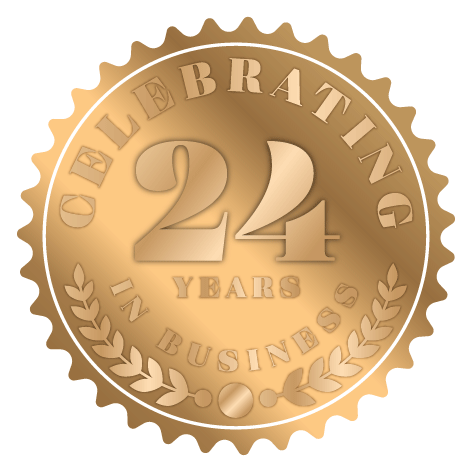Incurring expenses is an unavoidable fact of running a business. But which expenses can you claim tax deductions against and which don’t meet the tax-free criteria?
Here’s our lowdown on which expenses you can claim against tax.
Incurring expenses is an unavoidable fact of running a business. But which expenses can you claim tax deductions against and which don’t meet the tax-free criteria?
Here’s our lowdown on which expenses you can claim against tax.
Which Business Expenses Can You Claim Deductions Against?
If your business expense is directly related to earning your assessable income then you should be able to claim a tax deduction against this particular cost.
For example, everyday business expenses that you may be eligible include:
- vehicle expenses, transport costs and travel for business purposes
- rent paid on business premises
- depreciation on items like computers and office furniture
- interest on borrowing money for the business
- some insurance premiums
- work-related journals and magazines
- membership of professional associations
- home office expenses
- work-related mobile phones and phone bills
- stationery
- work uniforms
- tax agent’s fees.
This is good news for your operational spending, your tax costs and your ongoing cashflow position. The more deductions you can claim, the smaller your tax bill will be. The amount of a deduction (and when you can claim it) will vary, based on the type of expenses you’re claiming. You can find out more on the Inland Revenue Department (IRD) website here.
On the whole though, there are three basic rules for checking the your expense claim is a valid business deduction – and that it won’t be challenged by the IRD.
- The expense must have been for your business, available as an allowable deduction and not for private use.
- If the expense is for a mix of business and private use, you can only claim the portion that is used for your business.
- You must have records to prove that the expense was incurred.
If your business expense is directly related to earning your assessable income then you should be able to claim a tax deduction against this particular cost.
For example, everyday business expenses that you may be eligible include:
- vehicle expenses, transport costs and travel for business purposes
- rent paid on business premises
- depreciation on items like computers and office furniture
- interest on borrowing money for the business
- some insurance premiums
- work-related journals and magazines
- membership of professional associations
- home office expenses
- work-related mobile phones and phone bills
- stationery
- work uniforms
- tax agent’s fees.
This is good news for your operational spending, your tax costs and your ongoing cashflow position. The more deductions you can claim, the smaller your tax bill will be. The amount of a deduction (and when you can claim it) will vary, based on the type of expenses you’re claiming. You can find out more on the Inland Revenue Department (IRD) website here.
On the whole though, there are three basic rules for checking the your expense claim is a valid business deduction – and that it won’t be challenged by the IRD.
- The expense must have been for your business, available as an allowable deduction and not for private use.
- If the expense is for a mix of business and private use, you can only claim the portion that is used for your business.
- You must have records to prove that the expense was incurred.
Which Business Expenses Can You NOT Claim?
As we’ve explained, you can claim a deduction against most business expenses that are incurred as part of your day-to-day revenue-generation activities. But there are some business expenses you cannot claim against tax.
These non-tax-deductible expenses include:
- The principal portion of loan repayments
- Speeding tickets or parking fines relating to your own or business vehicles
- Any penalties you’ve incurred from the IRD relating to late filings or late payments
- Purchases of new equipment, machinery or plant, although it’s possible that these assets may be depreciated over time
- Insurance premiums for life insurance, accident insurance, personal sickness and mortgage protection insurance
- Any costs you’ve incurred in the initial stages of setting up your business
- Most clothing, footwear and eyewear is not deductible. But if the clothing is required for the role, i.e. uniforms or safety boots etc, then it may be tax deductible
- Legal costs relating to any capital acquisitions you make
As we’ve explained, you can claim a deduction against most business expenses that are incurred as part of your day-to-day revenue-generation activities. But there are some business expenses you cannot claim against tax.
These non-tax-deductible expenses include:
- The principal portion of loan repayments
- Speeding tickets or parking fines relating to your own or business vehicles
- Any penalties you’ve incurred from the IRD relating to late filings or late payments
- Purchases of new equipment, machinery or plant, although it’s possible that these assets may be depreciated over time
- Insurance premiums for life insurance, accident insurance, personal sickness and mortgage protection insurance
- Any costs you’ve incurred in the initial stages of setting up your business
- Most clothing, footwear and eyewear is not deductible. But if the clothing is required for the role, i.e. uniforms or safety boots etc, then it may be tax deductible
- Legal costs relating to any capital acquisitions you make
Talk To Us About Reducing Your Business Expenses
This isn’t an exhaustive list of tax-deductible expenses. There will be various ways to claim your operational expenses against the relevant reliefs and incentives offered by the IRD.
If you’re looking to cut back your costs and improve your tax efficiency, we can help. Talk to us about your regular operational expenses and tax costs and we’ll work with you to find the important reliefs, incentives and allowances that can be claimed.
Get in touch to start reducing your expenses.
This isn’t an exhaustive list of tax-deductible expenses. There will be various ways to claim your operational expenses against the relevant reliefs and incentives offered by the IRD.
If you’re looking to cut back your costs and improve your tax efficiency, we can help. Talk to us about your regular operational expenses and tax costs and we’ll work with you to find the important reliefs, incentives and allowances that can be claimed.
Get in touch to start reducing your expenses.


